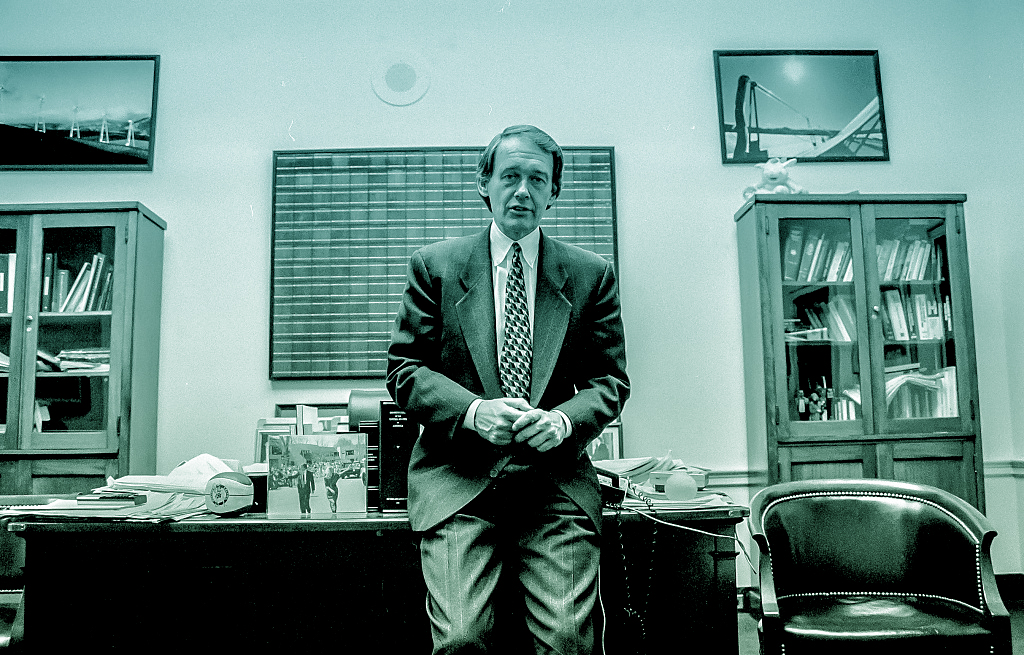This week, Green New Deal co-author and longtime carbon pricing champion Senator Ed Markey fended off a challenge from Congressman Joe Kennedy III in what turned out to be a historic result to a contentious election that Markey was not expected to win. Beyond providing a boost to supporters of a Green New Deal at the Federal level, Markey’s win proves that leading with ambitious and science-based policy is a winning electoral strategy. In Massachusetts, this also provides a boon to efforts to pass expansive climate legislation in the state legislature.
Congressman Kennedy is no climate denier. In fact, he has repeatedly recognized the scope of the climate crisis and is a strong advocate for green solutions. What set Markey apart in the race was how central the concept of a Green New Deal was to his campaign. At any given (socially distant) rally held by the Markey campaign you’d see dozens of placards proclaiming “Green New Deal” above his name, and climate groups came out strong for him. The Sunrise Movement, a youth-led national environmental justice organization, poured thousands of volunteer hours into his race, and a group of environmental non-profits spent over a million dollars boosting Markey.
Their enthusiasm for Senator Markey didn’t come out of the blue. Markey, who has been in public life for over 40 years, has led on climate in multiple instances. Notably, he was lead House sponsor of ‘Waxman-Markey’, a 2009 federal carbon pricing bill that Markey was able to get through the U.S. House of Representatives but was ultimately killed in the Senate. More recently, Markey worked with Congresswoman Alexandria Ocasio-Cortez (AOC) to introduce the Green New Deal resolution in the Senate, a policy proposal that has energized many campaigns and activist organizations across the country.
The Markey-Kennedy race was a referendum not on whether we should act on climate, but how far we should. The Green New Deal provides an expansive view of climate change as a public policy issue, one that touches on every aspect of society and the economy. Since being popularized by AOC in 2018, the proposal has been controversial. Those on the right and conservatives have vigorously attacked it, calling it un-American and claiming it would destroy the economy. While even a few in the Democratic Party have questioned whether it goes too far by fundamentally changing the nature of the American economy.
Markey’s win reduces the potency of these arguments against the Green New Deal. There was no voter backlash against his call for the policy, but rather enthusiasm for it. As among the few large state-wide races in the country where a Green New Deal was on the ballot, Markey’s win establishes a platform for others looking to run on ambitious, progressive and justice-oriented climate solutions across the country.
It’s more than just a milestone for Democrats as they wrestle with how to deal with the climate crisis, Markey’s win has serious implications here in Massachusetts.
It unequivocally proves that the Democratic electorate in the state, the same that regularly elects members of the state Senate and House, support the urgency of acting on climate and the equitable goals embodied by the Green New Deal. Massachusetts voters have already seen and experienced the effects of the climate crisis in worsening natural disasters, local environmental injustices, and changes to our natural world, and want their elected officials to do something about it.
In a more realpolitik sense, many of the state’s Democratic incumbents and Massachusetts legislative leaders came out strong for Markey, providing ringing endorsements of him as people waved those Green New Deal placards — including Senate President Karen Spilka and House Speaker Bob Deleo, and other energy and climate policy leaders like Senator Barrett, and Representatives Haddad and Meschino.
At the same time, most races for open seats in the legislature featured Democratic primaries in which both candidates took strong stances on the climate crisis. Take the 8th Norfolk District, where both Andrew Flowers and Ted Philips strongly supported policies like 100% renewable energy, and called out environmental justice as a core issue. This virtually ensures that a new group of freshman lawmakers will come in knowing the saliency of climate as a local issue, and the desire of their constituents to see action.
Even as the State House legislators negotiate the finishing touches on a climate bill for this session, the urgent need for more ambitious policy for Massachusetts in 2021 looms. The state still does not have a clear pathway for reducing emissions in the building and heating sectors, and the billions of investments in cleaner transportation are lagging behind. The state is not on track to achieve 100% renewable energy within the next 10-15 years, and we’re not investing enough in offshore wind and the jobs that come with it. We still have a long way to go to ensure that we empower environmental justice communities in our state, and invest in cleaner alternatives to natural gas.
In short, next session will require passing an ambitious legislature agenda that draws on the core of Senator Markey’s signature policy by ensuring climate action, environmental justice, and green jobs. Massachusetts voters have shouted loud and clear that they want elected officials who will champion a green agenda and Beacon Hill sure has heard it.









